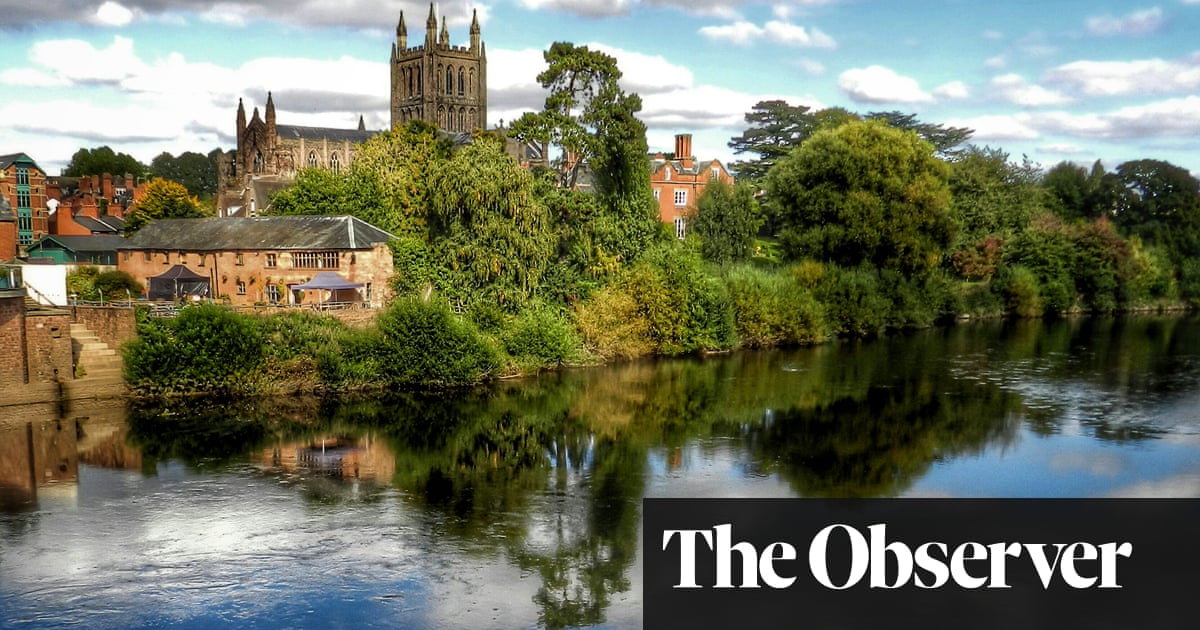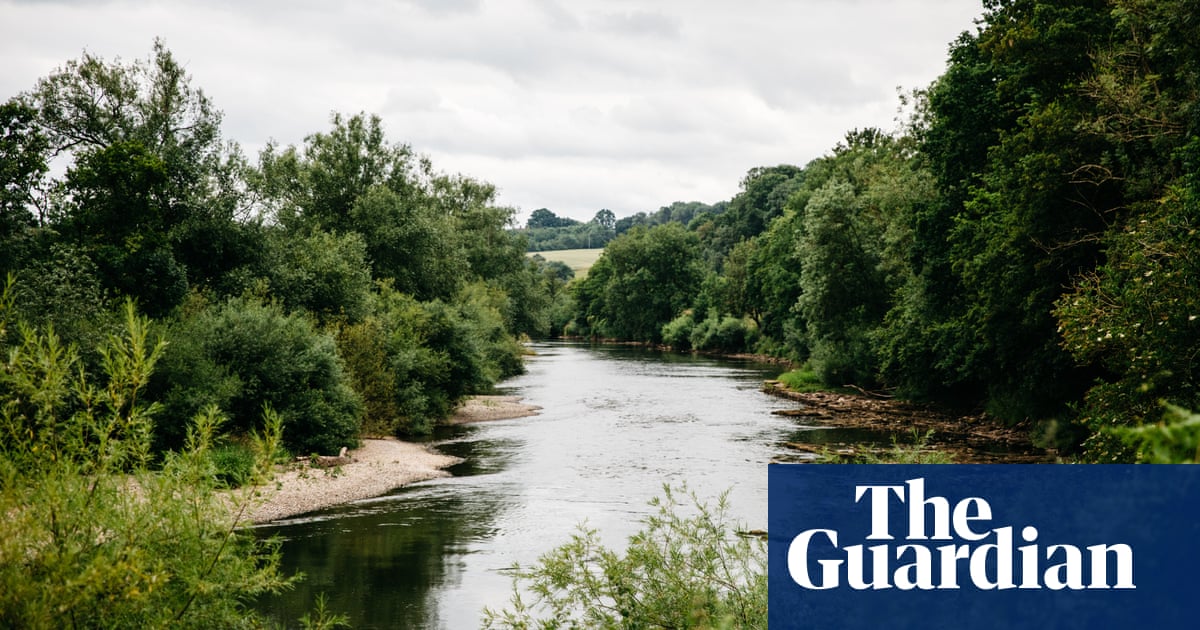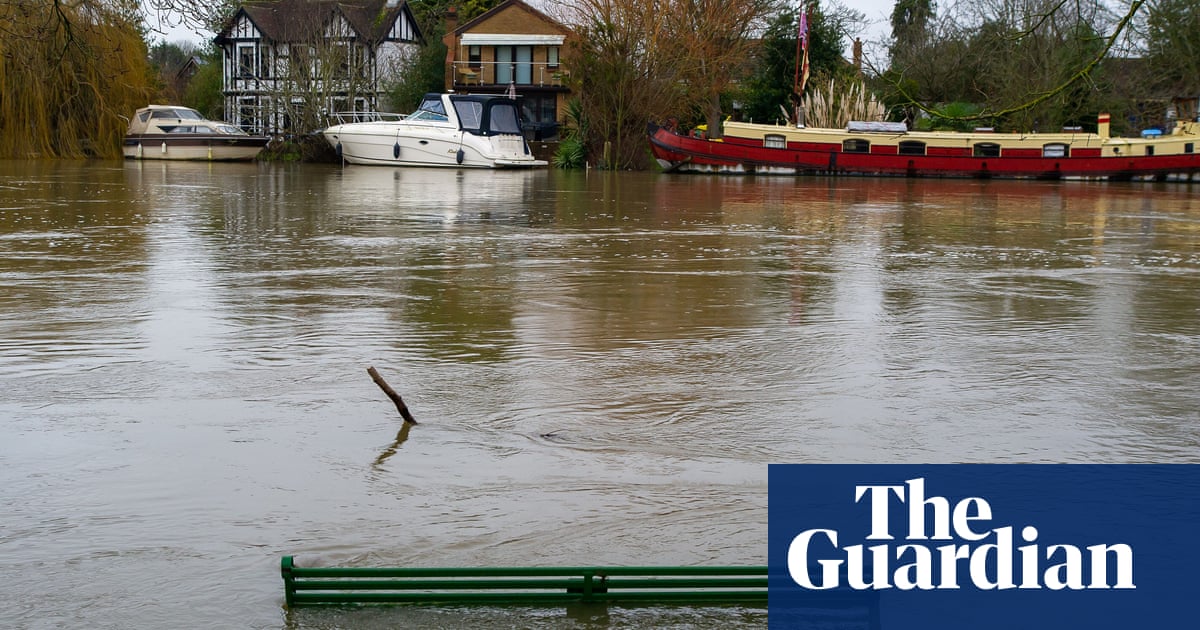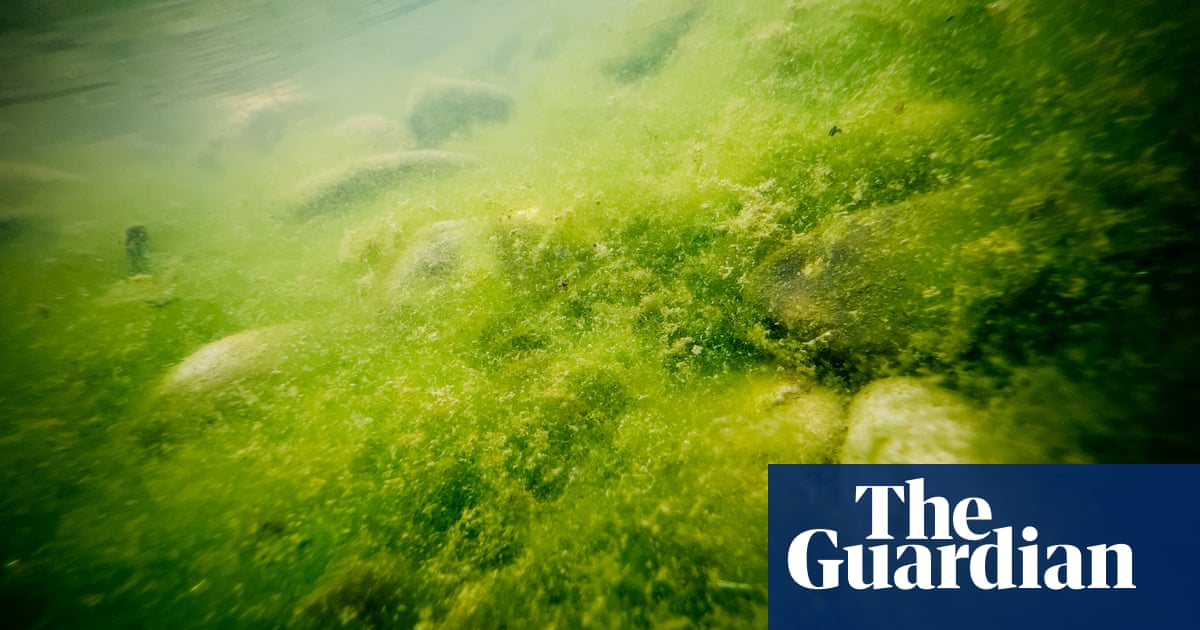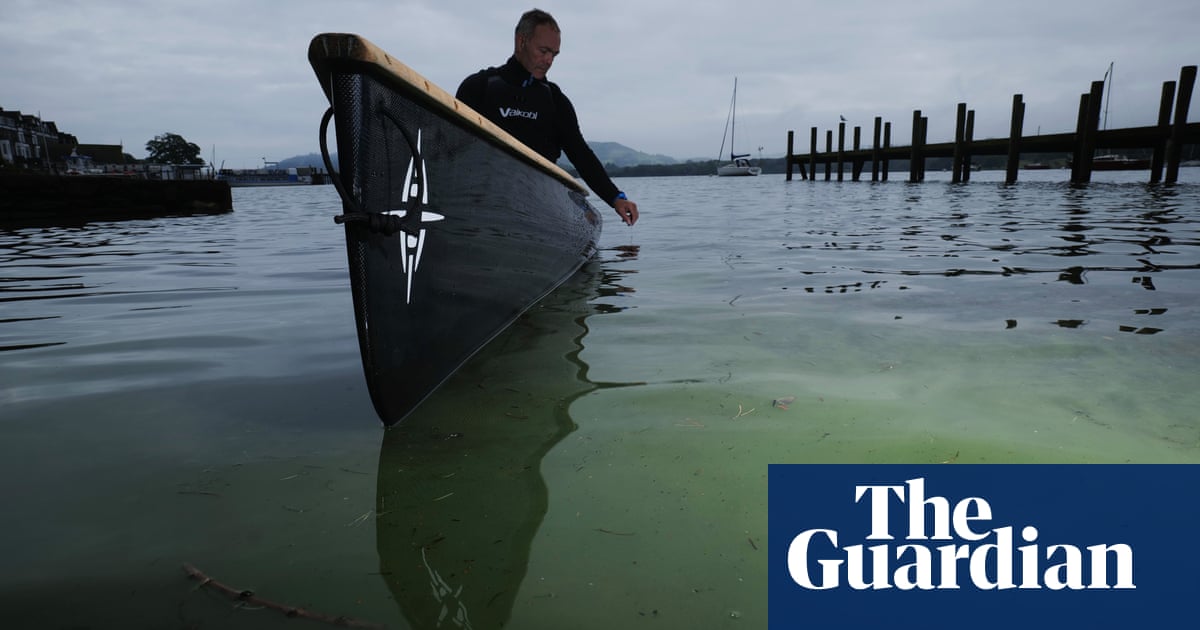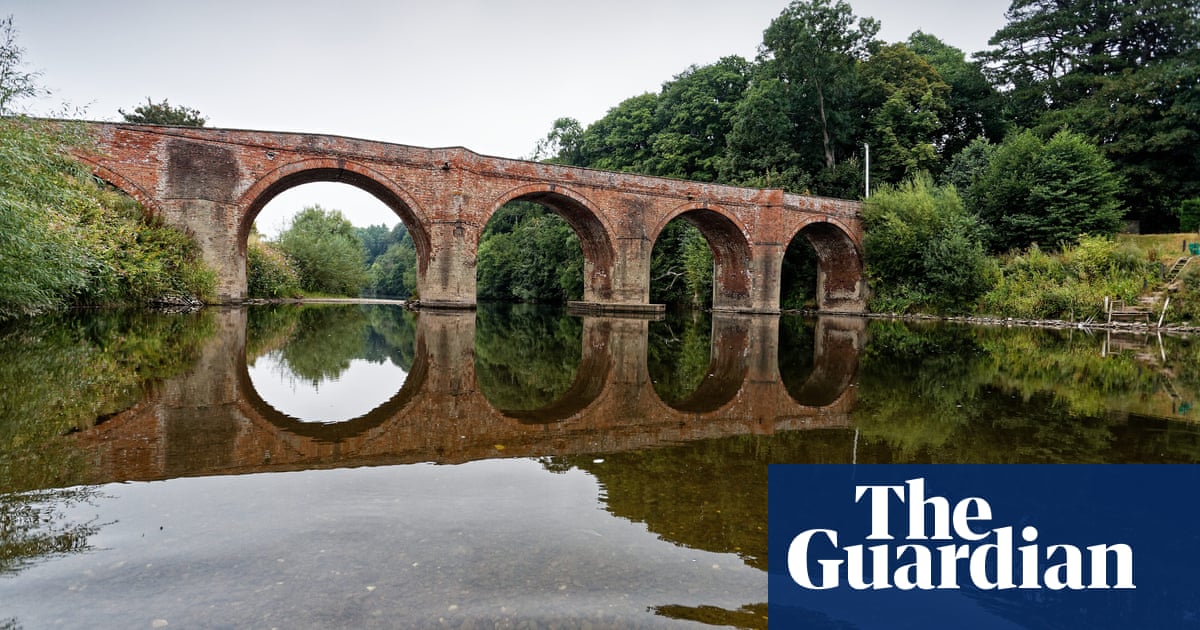
The Environment Agency and the UK government failed to protect the River Wye from catastrophic decline by allowing pollution from industrial chicken farming to saturate the land and devastate the protected river, a legal challenge argues.
Campaigners including Feargal Sharkey protested on Wednesday outside the high court in Cardiff where the judicial review brought by the group River Action is being heard. River Action says a loophole in the law is allowing poultry waste from 25 million chickens intensively farmed in the catchment to poison the Wye.
Charles Watson, the founder of River Action, said the loophole meant the river was almost dead. It has been downgraded by Natural England to an unfavourable state as a result of the mixture of pollution from agricultural runoff and the diffuse pollution from land saturated with nitrogen and phosphorus.
“The largest concentration of intensive livestock production in Europe is farmed in the catchment,” said Watson. “Twenty-five million chickens are produced in this catchment and we argue that the agency has not enforced the law.
“As a result huge quantities of manure have been allowed to be dumped in the Wye, to the extent that this heavily environmentally protected river is almost dead.”
Watson said the farming rules for water state it is an offence for farmers to apply to the land fertilisers or organic manures at a level that exceeds what the land can naturally absorb. But a loophole in the law states farmers must abide by these rules unless it is impractical to do so.
“This was the result of heavy lobbying by the National Farmers Union over the years,” said Watson. “This huge loophole has had horrendous consequences as manure from this huge concentration of intensive livestock runs off into the Wye.
“The bodies which are supposed to protect this river have wantonly failed to do their job. The interests of food production have totally superseded protecting the environment.”
The judicial review is being held over two days in Cardiff.
River Action said in court documents submitted to the judicial review that it was not disputed that the Wye, one of the most celebrated rivers in the UK, was in ecological crisis.
“In recent years it has been blighted by algal blooms that suck the oxygen out of the water and choke the native water crowfoot, a trailing aquatic plant, that is the foundation and a protected feature of the river’s ecosystem,” the campaign group said.
“The algal blooms are agreed to be caused by excess nutrients, nitrogen and especially phosphorus … It is not disputed that by far the largest single contributor to that nutrient overload is agricultural runoff.”
The NFU deputy president, Tom Bradshaw, said: “The NFU recognises the need to protect the environment; however, we also believe it is important that legislation is interpreted and applied correctly and proportionately by the Environment Agency and Department for Environment, Food and Rural Affairs.
“The NFU has decided to intervene in the legal challenge being brought by River Action to ensure that our members’ interests are represented before the court on this critical issue.”
An Environment Agency spokesperson said: “Since 2021 we have performed more than 7,000 farm inspections and required farmers to carry out over 11,400 improvement actions, including around the River Wye. These range from improving slurry storage to better management of nutrients. Our inspection regime is supported by the use of technology such as satellite images and drone footage.
“Anyone caught breaching environmental laws faces enforcement action, up to and including prosecution. We are unable to comment on ongoing legal proceedings.”




